High times in Basel: Swiss city experiments with recreational cannabis
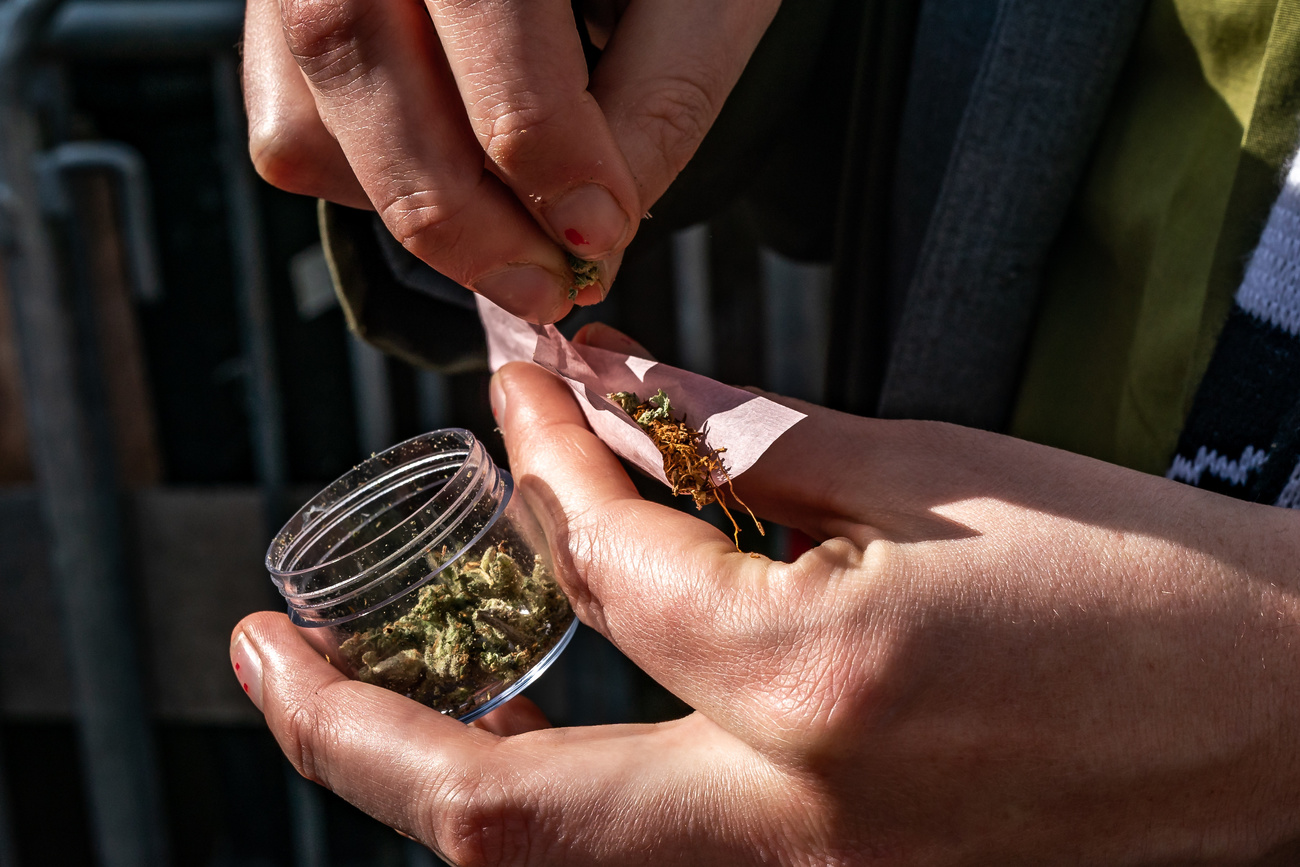
Switzerland has launched legal cannabis experiments in various cities this year to assess the benefits of regulating the supply of the recreational drug. SWI swissinfo.ch visited the city of Basel, where cannabis is available in some pharmacies, to find out how the first pilot scheme is going.
“I’d like some Purple Gas, please,” says *Markus, flashing his ID at the man behind the counter of the Klybeck pharmacy in central Basel. The pony-tailed chemist nods and disappears into the back of his store. He returns to the counter and scans a small brightly coloured packet. “That’ll be CHF50 ($54), please.”
The “Swiss-certified cannabis” label on the packet gives the game away. Markus has just bought 5 grams of 12% THC weed for his personal use.
He is one of 370 adults taking part in Basel’s “Weed Care” scheme – a 2.5-year recreational pot smoking study. Its aim is to examine the impact of regulated cannabis supply on the health and consumption behaviour of users with a view to possible changes to the Swiss law. Basel was the first of seven Swiss cities to launch scientific studies this year. The results – especially on health risks, smoking habits and problematic consumption – will be closely scrutinised in the coming years.
The pilot projects have public support yet remain contentious. Could Switzerland’s cautious step-by-step scientific approach offer a new way forward for countries considering whether to allow recreational cannabis?
‘A bit stronger than a glass of wine’
Markus started smoking cannabis with friends in Basel when he was 14. The 30-year-old now smokes at parties, in bars and occasionally after work, but not every day, he insists. Working long hours in the restaurant business can be exhausting, and a joint is his way of winding down. “It feels a little bit stronger than a glass of wine, but you don’t feel bad the next day,” he says.
Participating in the study was an obvious choice for Markus. “I like to smoke, but I don’t like the part where you have to go and find it and you’re not sure of the price or quality. That was my main reason for signing up for the study,” he says. By participating, he also hopes to “improve the image of weed smokers”.
The video below shows the experience of another cannabis user in the Basel trial, named Daniel.
Cannabis is legal for medical use in Switzerland, but only in special cases, such as pain relief. Low-potency cannabis can also be bought legally for non-medical use, but only when it contains less than 1% tetrahydrocannabinol (THC) – the substance that generates a “high”. Although growing, consuming and dealing stronger cannabis is illegal, carrying up to 10 grams of it for your own consumption is not punishable by law. Around one-third of the Swiss population has tried cannabis at some point, according to the Federal Office of Public Health (FOPH).
After grappling with the issue for years, Switzerland has decided to investigate the impact of decriminalising recreational cannabis. In 2020 parliament backed a legal change allowing for studies to provide scientific information for future decisions on cannabis regulation. “Cannabis must be controlled, legally accessible, but not be promoted”, declaredExternal link a federal commission last year. And that’s what local health departments are trying to do in collaboration with universities, research institutes and other specialist organisations in cities like Basel.
Cannabis trials are strictly controlled
Basel City’s cantonal health authorities chose Klybeck and eight other pharmacies to sell cannabis for the pilot scheme. Since January, they offer six products – four types of cannabis flowers and two types of hashish – of varying strength. The organically homegrown cannabis is produced by the Swiss firm Pure Production and sold using names like “Purple Gas”, “Lemon Tart” and “Diesel Pollen”.
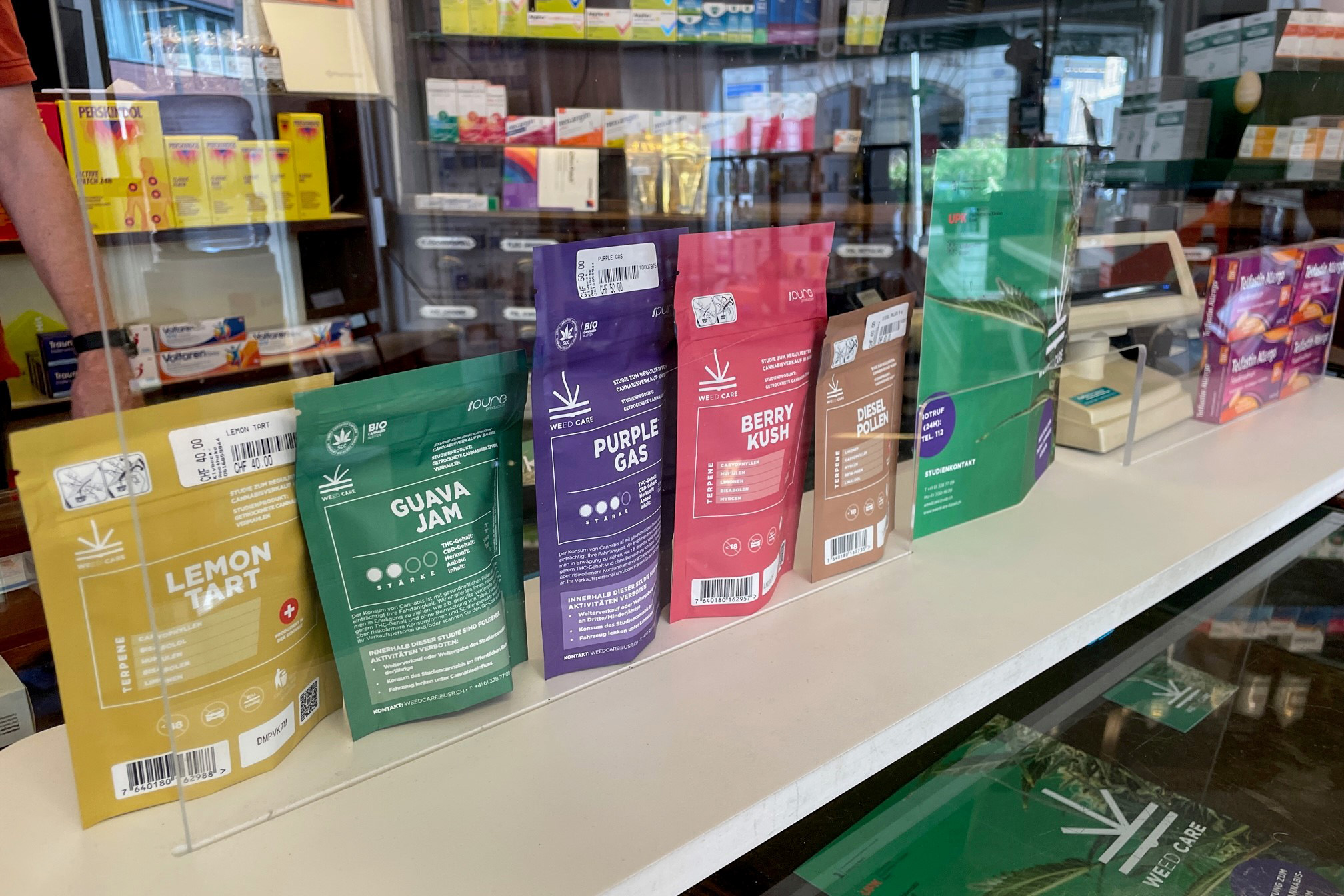
Pharmacist Markus Fritz is an enthusiastic supporter of the pilot project.
“Prohibition doesn’t work. Selling weed in pharmacies is interesting, as the products are high organic quality. Consumers know what they’re buying,” he says.
The cannabis study is closely controlled. The selected participants, mostly men (80%) aged 18-76, can only buy a maximum of two five-gram packs at a time for their own personal use, up to a maximum of 10 grams of pure THC per person per month.
The packs stored in the pharmacy safe contain products with THC levels ranging from 4.5% to 20%. The prices are aligned with those on the illegal market. A gram costs CHF8-12 ($8.40-12.60), depending on the THC level. Study participants can only transport cannabis in sealed original packaging in public and consume it in private.
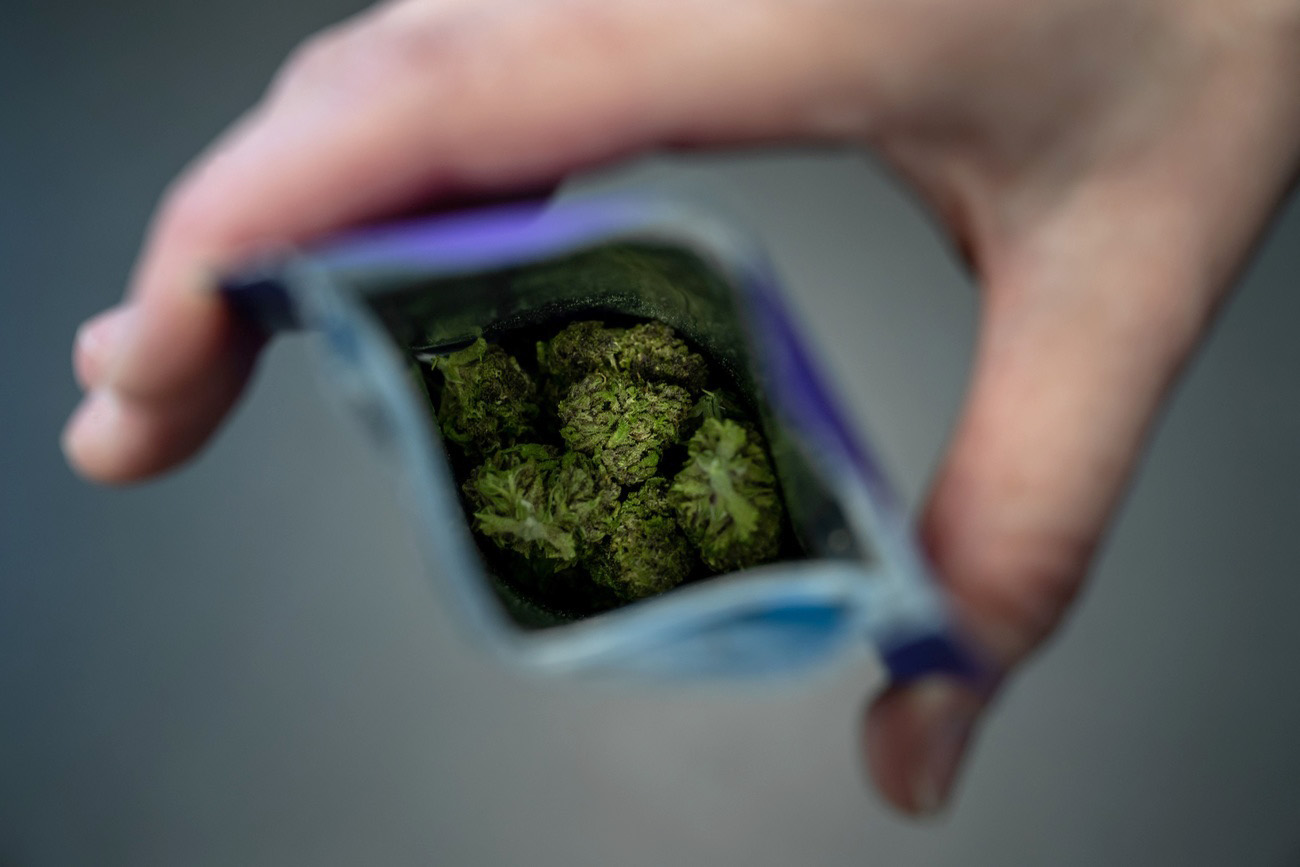
‘People smoke everywhere’
On the banks of the Rhine River that flows through the city, sun worshippers catch late autumn rays. Grandparents hand out snacks to hungry children, and close to the water’s edge, a distinctive sweet smell wafts through the air.
“In Basel people smoke everywhere,” says a waitress clearing a nearby café table. “Here on the banks of the Rhine it’s quite open and the police pass by two or three times a day in summer. When there are crowds after work you can smell dope everywhere, but when a police officer comes, they just throw it in the river.”
Switzerland has gradually decriminalised moderate cannabis use: in July this year, the Federal Court ruled that police are not allowed to confiscate and destroy cannabis quantities less than 10 grams if there is no proof of any crime having taken place, and if the user is not nabbed while actually consuming the drug.
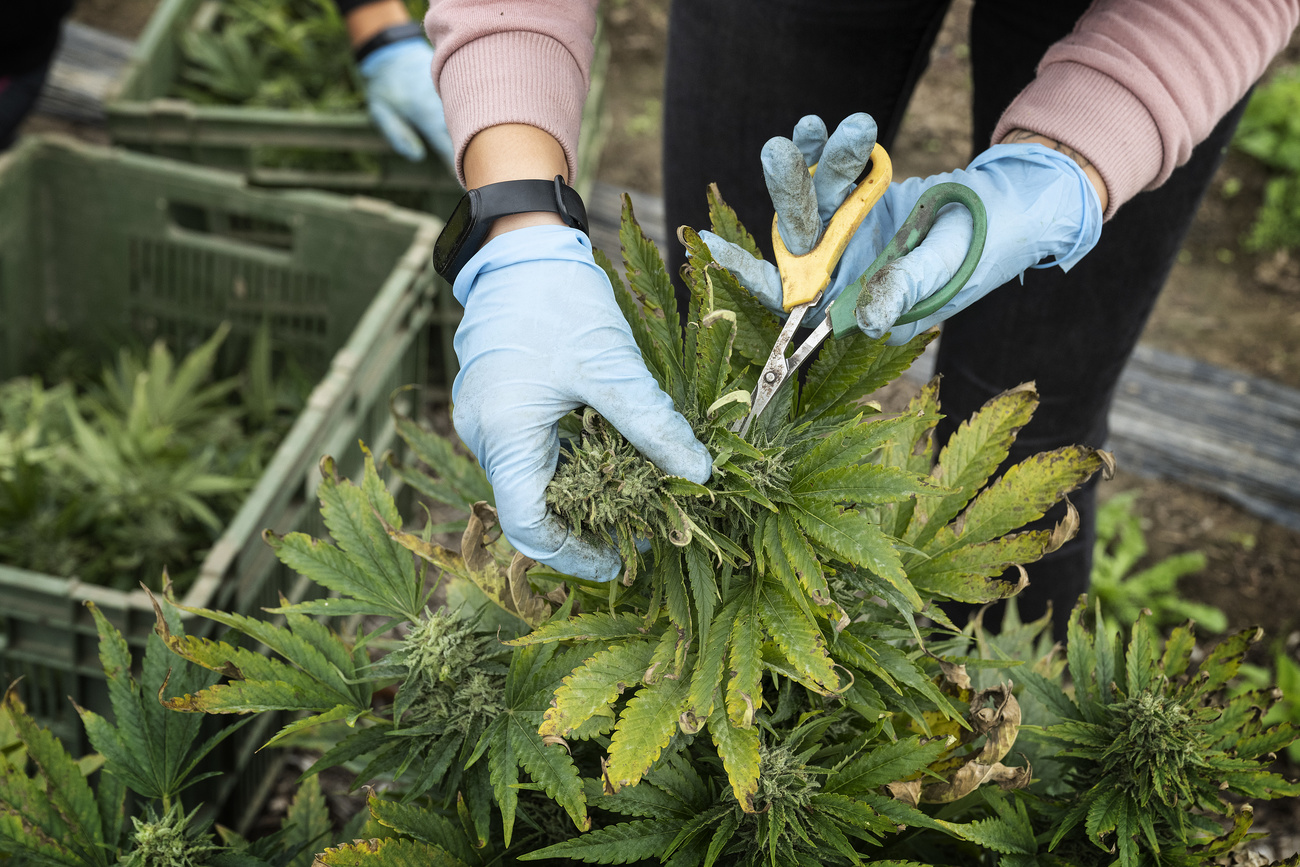
Swiss public backs legalisation of weed
The pilot schemes dotted across Switzerland have the backing of the Federal Office of Public Health, most city authorities and a majority of Swiss residents. A 2021 poll found that 70% of residents think Swiss cannabis law should be reformed, up from 58% three years earlier. They cite limiting the black market and improving consumer safety as important reasons for legalisation.
But the schemes still have their critics.
The Basel branch of the right-wing Swiss People’s Party backs the use of cannabis for medical reasons but roundly rejects scientific studies into recreational use.
“It is not the state’s responsibility to promote illegal narcotics as part of controversial projects at the taxpayer’s expense,” it saysExternal link.
Cannabis linked to mental illness
There are also concerns about the link between cannabis and health problems. A United Nations drug watchdog warnedExternal link earlier this year that governments’ moves to legalise the recreational use of cannabis have led to increased consumption and associated health problems. The Bern government opposedExternal link a recreational trial in the capital for similar reasons.
A studyExternal link published last year by the University of Bern found a sharp increase in the rates of psychiatric hospital admissions for cannabis-related diagnoses. Most cases were found in adolescents and young adults (aged 15–44), with a larger increase in men compared to women.
The “Weed Care” project in Basel aims to prevent risky consumption habits, detect problematic use early and reduce harm, says Lavinia Baltes, co-lead of the project and head of research at a psychiatric clinic in Aargau.
She highlighted the example of Canada, where cannabis was legalised five years ago. Canada’s Cannabis ActExternal link has a strong focus on public health and public safety via restrictions on sale to young people, limits on THC levels, clear comprehensive health warnings on products and public information and research into cannabis use.
“Using this approach we can see a shift in the method of consumption, away from smoking to less risky forms of consumption such as vaping or ingestion,” said Baltes.
Since 2014, the use of cannabis for recreational purposes has been legalised in many American states, as well as in Uruguay since 2012 and in Canada since 2018.
In 2022, Thailand became the first country in southeast Asia to decriminalise cannabis, but in the absence of specific measures, the government had to hastily issue rules to prevent its unchecked use, particularly among children.
In December 2021, Malta passed a law that permitted the limited growing of cannabis at home and in registered non-profit growing clubs, as well as its use in private homes. The system of limited cannabis distribution that has existed in the Netherlands since the 1970s has seen further developments, with the recent establishment of a ‘closed coffeeshop supply circuit’.
Meanwhile, governments in the Czech Republic, Germany, Luxembourg and Switzerland have announced plans for the regulated supply of cannabis for recreational use. Switzerland started scientific pilot trials of legal cannabis sales in January 2023.
In Basel, participants must take part in numerous meetings and online surveys to share their experiences with health experts.
Experts hope to learn important information on the impact of cannabis on participants’ mental and physical health, focusing on issues such as depression, anxiety, attention-deficit-hyperactivity disorder, psychosis, and life quality.
The first findings will be published in January 2024. So far, cantonal health authorities report that 13 kilograms of cannabis were sold through the scheme in the first half of 2023 and that there were “no adverse events”.
According to the Klybeck pharmacist, the strongest products are the most popular. Markus says he has tried a few different cannabis varieties during the trial, and he smokes the same amount as before.
“But I will try to consume less over time,” he says.
*Name changed at source’s request. Real name known to author.
Edited by Sabrina Weiss/Veronica De Vore

In compliance with the JTI standards
More: SWI swissinfo.ch certified by the Journalism Trust Initiative










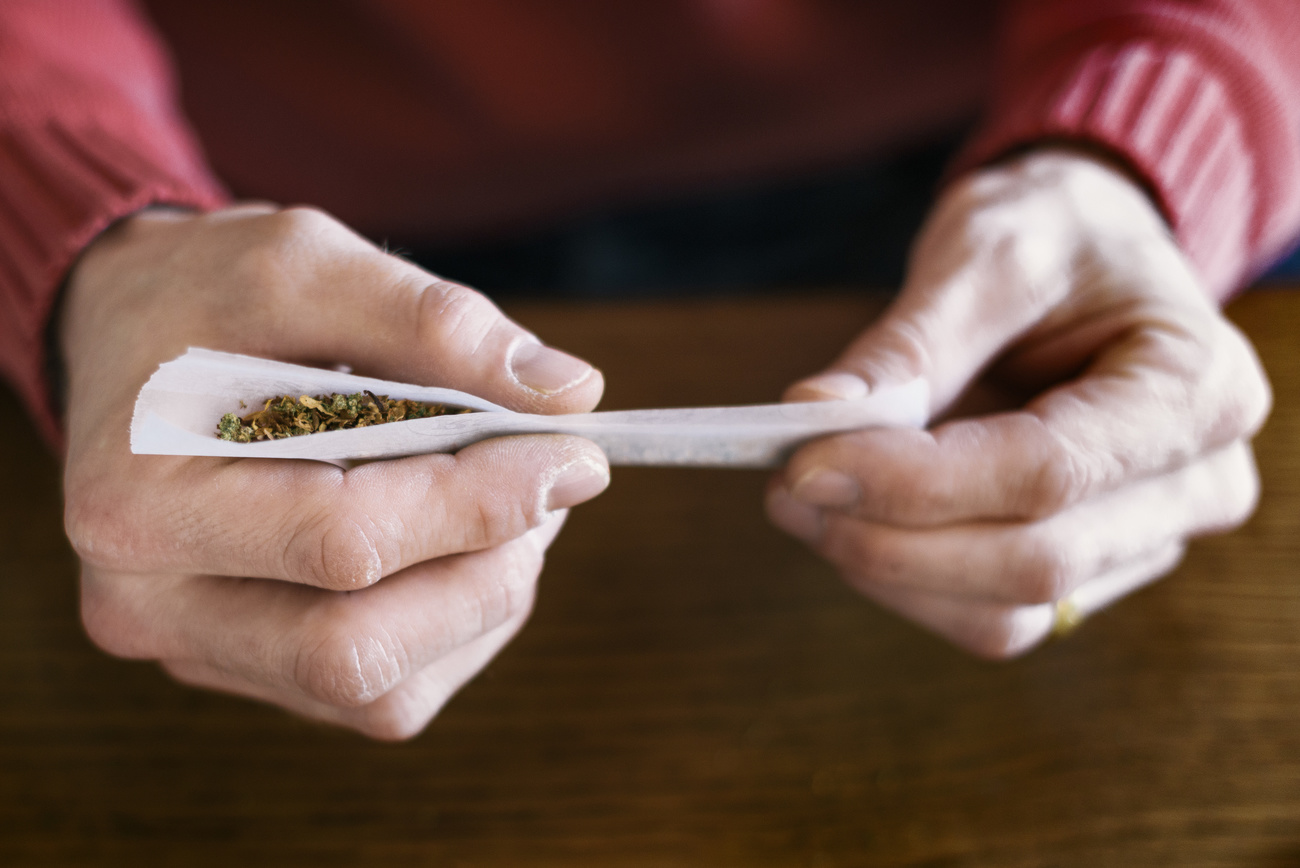
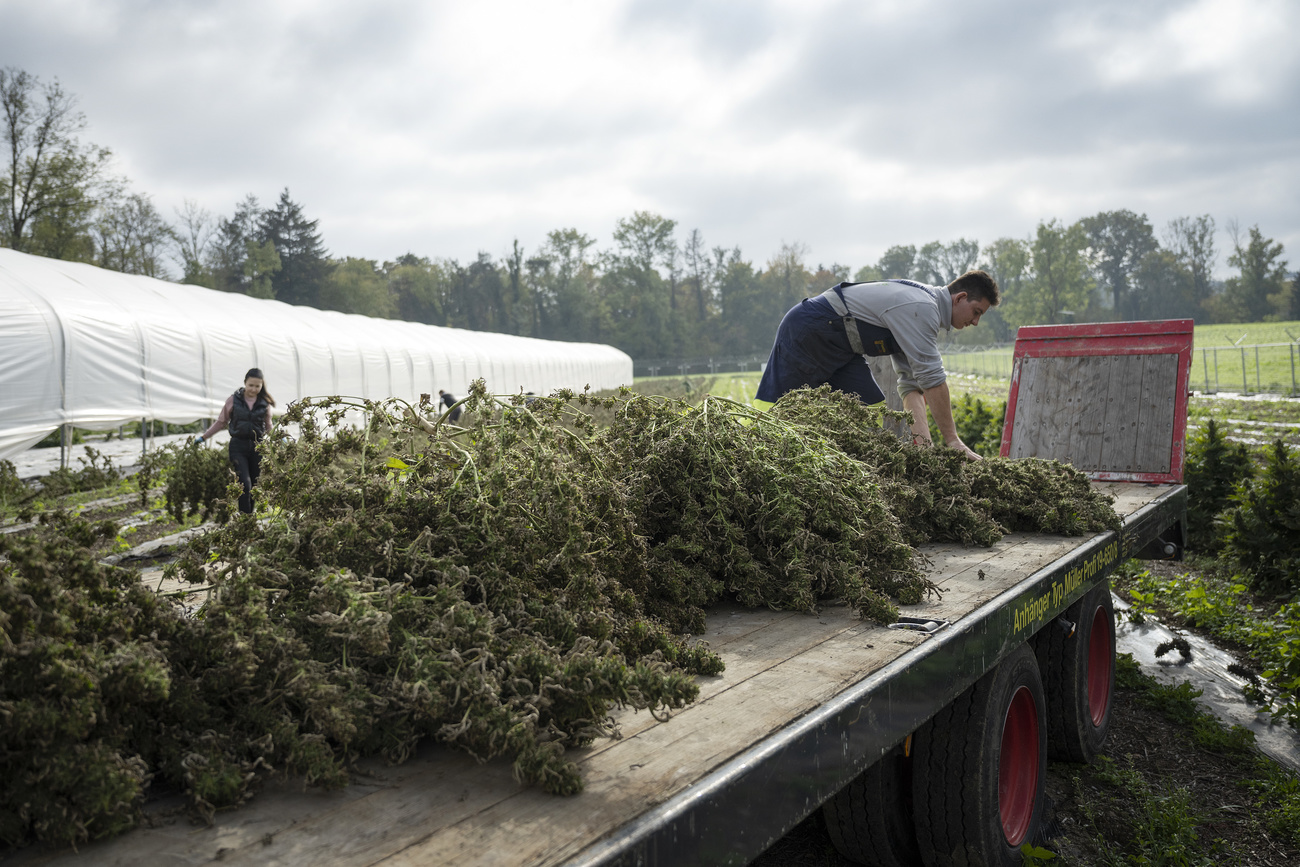



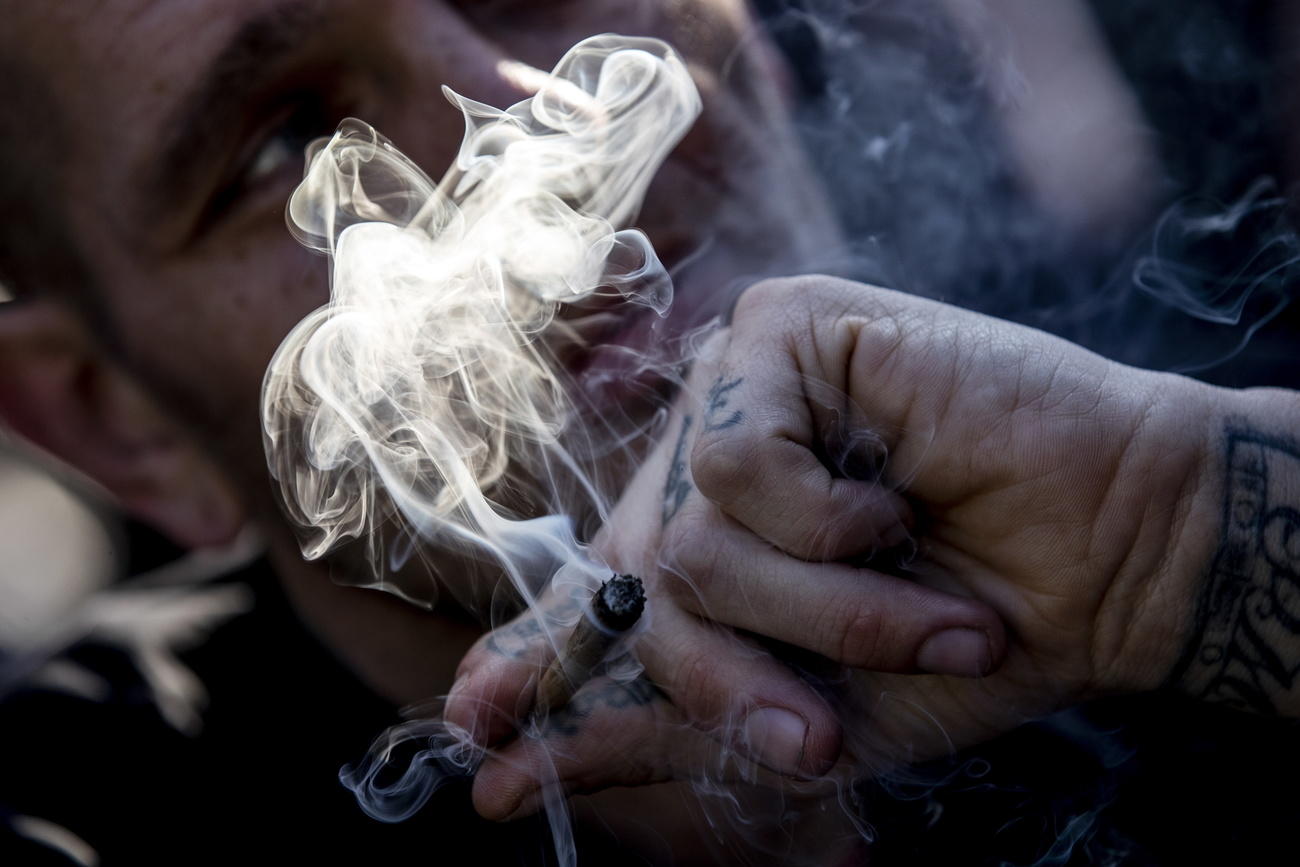
You can find an overview of ongoing debates with our journalists here . Please join us!
If you want to start a conversation about a topic raised in this article or want to report factual errors, email us at english@swissinfo.ch.